What Enzymes Increase The Rate Of Chemical Reactions
Enzymes increase the rate of chemical reactions by stimulating ATP hydrolysis C. Enzymes can greatly speed up the rate of a reaction.

Enzyme Rate Of Reaction Factors Catalysts Video Lesson Transcript Study Com
Enzymes increase the rate of a chemical reaction.
What enzymes increase the rate of chemical reactions. Enzymes are biological molecules made of proteins that help speed up the rate of a chemical reaction. Enzyme function is generally increased if the 3-D structure or conformation of an enzyme is altered. The Central Role of Enzymes as Biological Catalysts.
Either it serves as a catalyst or it binds with other molecules to produce a new molecule that helps hasten a reaction. It can never start a reaction and have the. Enzymes decrease the free energy of reactants.
Like catalysts enzymes are also affected by a number of factors that regulate enzyme action. Enzymes are the biological catalysts that are proteinaceous in nature that help to increase and regulate the chemical reactions despite themselves getting altered in the reaction. Enzymes Part 2 Factors affecting the rate of enzymes catalyzed reactions Several factors affect the rate of an enzyme catalyzed reaction.
A catalyst is a substance that increases the rate of a chemical reaction with out going through any kind of chemical change They speed up or slow down reactions but remain the same. The protein catalyst enzyme may be part of a multi-subunit complex andor may transiently or permanently associate with a Cofactor eg. Study of Chemical Reactions Catalyzed by Enzymes The effects of S Gradual increase in S increases reaction velocity V0 until the enzyme is saturated with the S and then produces plateau.
Substrate concentration Effects of temperature Increased temperature increases the kinetic energy of substrate molecules. By increasing the enzyme concentration the maximum reaction rate greatly increases. Additionally the reaction rate depends on properties of the enzyme K k cat and the enzyme.
Enzymes are proteins that help increase the rate of chemical reactions inside cells. Catalysis of biochemical reactions in the cell is vital due to the very low reaction rates of the uncatalysed reactions. However enzymes are highly selective - meaning it only helps speed up a specific chemical reaction.
Enzymes are proteins that serve as catalysts. Bicarbonate H 2 CO 3 Water H 2 O and carbon dioxide CO 2 Some examples of enzymes and their specific substrates. B Enzyme function is independent of physical and chemical environmental factors such as pH and temperature C Enzymes increase the rate of chemical reactions by lowering activation energy barriers.
Choose the CORRECT statement about enzymes. The first of which is simply by placing substrates in contact with one another in such a way that the necessary. D Enzymes increase the rate of chemical reactions by.
This in turn increases the rate of. Enzymes speed up chemical reactions by lowering activation rates. However enzymes become saturated when the substrate concentration is high.
These include the following. In general the lower amount of activation energy that a potential reaction has the faster the rate of reaction will be. Hydrogen peroxide H 2 O 2 Water H 2 O and oxygen O 2 Carbonic Anhydrase.
Factors that affect enzyme action. These proteins are composed of many simpler molecules called amino acids. The catalyst is a type of substance having the potential of speeding up the chemical reaction rate without being absorbed in the reaction.
Enzyme catalysis is the increase in the rate of a chemical reaction by the active site of a protein. Although RNAs are capable of catalyzing some reactions most biological reactions are catalyzed by proteins. These factors are related to the chemical nature of enzymes as enzymes are proteins and proteins are affected by most of these factors.
Enzymes increase amount of products of a chemical reaction. Enzymes are able to lower activation energy and speed up reactions in four ways. The rate of a chemical reaction increases as the substrate concentration increases.
Enzymes are biological catalysts that accelerate the rate of chemical reactions in the biological system of living beings. A fundamental task of proteinsis to act as enzymescatalysts that increase the rate of virtually all the chemical reactions within cells. In the absence of enzymatic catalysis most biochemical reactions are so slow that they would not occur.
Enzymes change shape during the reaction process which allows them to efficiently reduce activation rates. Enzymes shift the equilibrium of a chemical reaction. Enzymes increase the rate of chemical reactions by lowering the activation energy barriers D.
Chemical Reactions Rates Of Reaction Factors Pathwayz

Rate Of Reaction Enzymes Role Importance Expii

Question Video Determining The Optimum Ph Of An Enzyme Using A Given Graph That Shows How This Enzyme S Activity Is Affected By Changes In Ph Nagwa

Energy Matter And Enzymes Microbiology
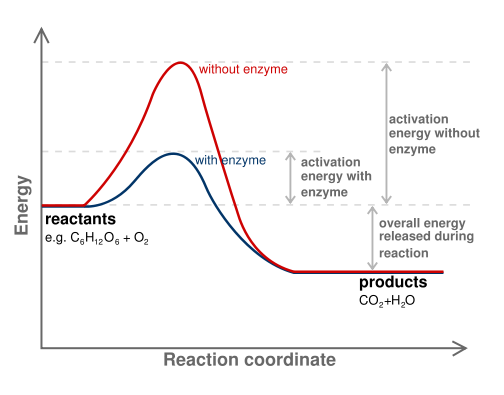
Chemical Reactions Biology For Majors I

Enzymes Biology For Non Majors I
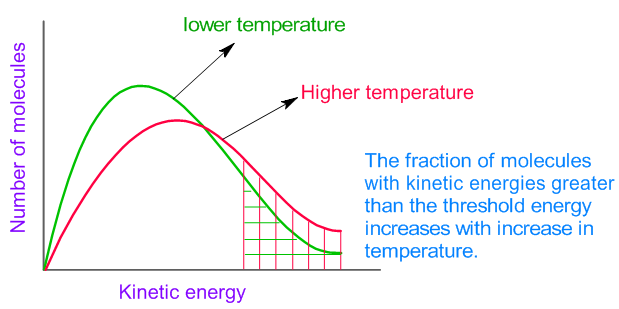
Factors Affecting Rate Of Chemical Reactions Adichemistry
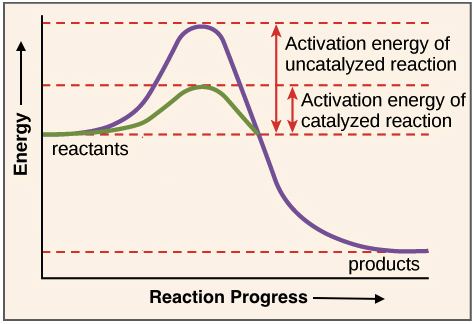
Enzymes Review Article Enzymes Khan Academy
How Enzymes Speed Up The Chemical Reactions Ck 12 Foundation

Making Reactions Faster Factors Affecting Rates Of Reaction Compound Interest
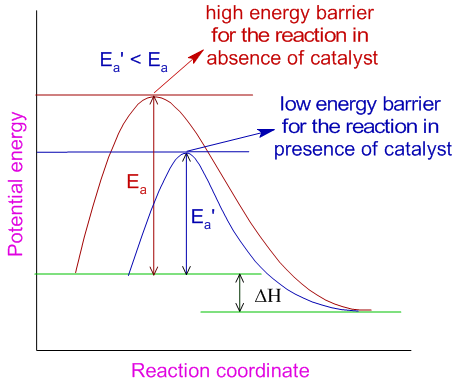
Factors Affecting Rate Of Chemical Reactions Adichemistry
Section 13 3 The Rate Of A Reaction
Https Dls Ym Edu Tw Course Hb Doc Lecture4 11 2011 Enzymes Pdf
3 10 Chemical Reactions In Living Things Human Biology
Section 13 3 The Rate Of A Reaction

Enzyme Rate Of Reaction Factors Catalysts Video Lesson Transcript Study Com
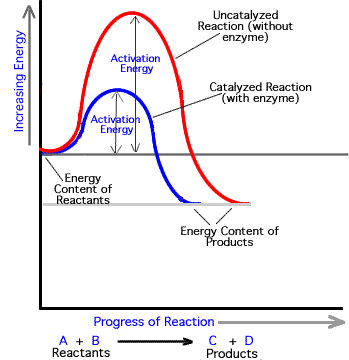
How Do Enzymes Speed Up The Chemical Reactions Use Activation Energy In Your Answer Socratic
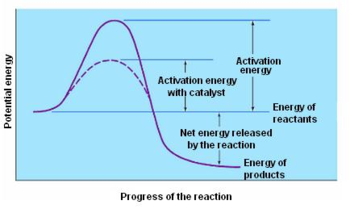



Post a Comment for "What Enzymes Increase The Rate Of Chemical Reactions"